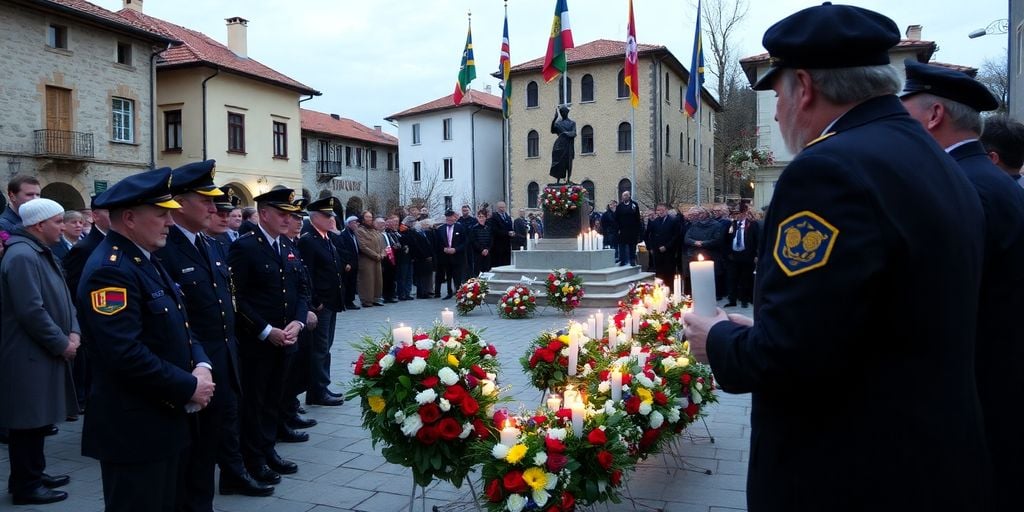Ceremonies to commemorate the 80th anniversary of the end of World War II, also known as Victory Day, took place across the Balkans on May 9, 2025. Leaders from various countries participated in wreath-laying ceremonies and tributes to honor the sacrifices made during the war, reflecting on the complex legacy of anti-fascism in the region.
Key Takeaways
- Commemorations varied in scale and significance across different Balkan countries.
- Leaders from Serbia, North Macedonia, Montenegro, Croatia, and Greece participated in ceremonies.
- The perception of anti-fascism and its legacy remains a complex and debated topic in the Balkans.
Commemorative Events Across the Region
In Serbia, a delegation from the parliament and government, alongside World War II veterans, laid wreaths at the Monument to the Liberators of Belgrade. This event highlighted the importance of remembering the sacrifices made during the war and the role of the partisans in liberating the country from fascism.
In North Macedonia, Defence Minister Vlado Misajlovski led a government delegation to the Partisan Cemetery in Butel, Skopje, where they commemorated both Victory over Fascism Day and Europe Day. This dual observance underscores the intertwined nature of historical remembrance and contemporary European identity.
Montenegro’s President Jakov Milatovic, along with other officials, held a ceremony in Podgorica, laying wreaths at the Monument to the Partisan Fighter on Gorica Hill. This event served as a reminder of the ongoing struggle against fascism and the importance of unity in the face of historical challenges.
In Croatia, Mayor Tomislav Tomasevic led a delegation to the Tomb of the National Heroes and the Partisan Cemetery in Zagreb, marking both Victory over Fascism Day and Zagreb Liberation Day. The participation of anti-fascist organizations in these ceremonies reflects a commitment to preserving the memory of those who fought against oppression.
Greek left-wing party SYRIZA’s president, Socrates Famelos, also laid a wreath at the Monument to the Fallen of the Battle of Elektriki in Keratsini, emphasizing the significance of anti-fascist struggles in shaping modern democratic values.
The Legacy of Anti-Fascism in the Balkans
The legacy of anti-fascism in the Balkans is complex and often contentious. While many commemorate the sacrifices made by partisans, there is also a growing discourse around the need to critically examine the socialist past and its implications for contemporary society.
- Historical Context: The Balkans experienced a tumultuous history post-World War II, transitioning from socialist regimes to more market-oriented economies, which has influenced current perceptions of anti-fascism.
- Contemporary Relevance: The struggles for democracy and social justice today are often framed within the context of the anti-fascist legacy, with movements advocating for direct democracy and popular resistance.
Conclusion
As the Balkans mark 80 years since the end of World War II, the ceremonies serve not only as a remembrance of the past but also as a reflection on the ongoing challenges faced by the region. The diverse approaches to commemorating this significant historical event highlight the complexities of national identities and the enduring impact of history on contemporary society. The legacy of anti-fascism continues to inspire movements for justice and democracy, reminding us of the importance of collective memory in shaping a better future.






